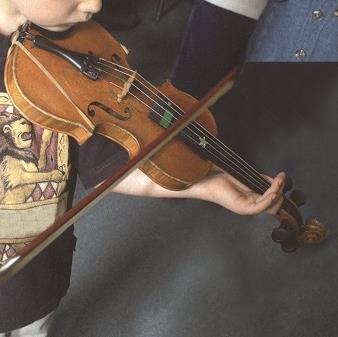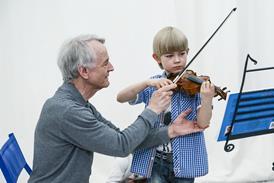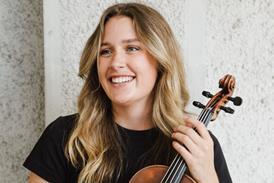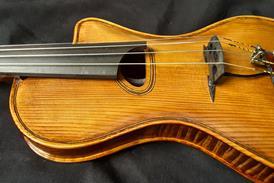When a child wants to stop instrumental lessons, teachers have a duty to bring matters to a positive close, argues violin teacher Celia Cobb

The parents of a pupil recently contacted me to say that their daughter was refusing point blank to practise her violin at home. The situation was causing so much tension within the family that they had come to the decision to stop lessons with immediate effect, and they would simply pay half a term’s fees in lieu of notice.
When a child decides to stop playing, it can be for a variety of reasons. Maybe a different instrument appeals more or maybe practising has been difficult. Time management is often an issue.
Whatever the reason, it’s important to have an honest and embarrassment-free conversation with the pupil (and their parents) about their thoughts and feelings, and once the decision has been made, to make a plan to ensure the very best possible finish. An abrupt cessation of lessons is rarely the right way to go as it allows little time for reflection.
The 4 types of difficult parents and tips for dealing with them
7 tips on motivating yourself to practise
The Strad panel discussion: making music fun for kids
In any case most teachers have a written contract with parents that includes a set notice period. Rather than grimly seeing through the remaining weeks of term with a feeling of reluctance, it is so important for teachers to embrace this time as an opportunity to celebrate the child’s achievements on their instrument, and highlight all the transferable musical and non-musical skills that they can take forward from the learning experience.
An obvious way of creating a sense of success is to work towards a goal. One boy I taught a few years ago was a talented young singer, with a keen ear and a natural sense of musicianship. His brother played the violin, so he had started lessons too. Although he made good progress, it soon became clear that he disliked the sound of the violin and the sensation of the chin rest against his jaw. After some discussion, he decided to go all out and take Grade 1 (which he aced with a distinction) before moving on to a brass instrument. Our last lesson was a joyful occasion which gave him time to reflect on everything he had achieved on the violin and to look ahead to new challenges with confidence.
If an exam isn’t a practical or desirable option for a pupil at the end of their time on a particular instrument, other more feasible goals can be chosen. These could include taking part in a concert performance or making a recording of a polished piece. But sometimes a goal-linked finish just isn’t possible – perhaps practice sessions have become so fraught that the child is unwilling to take the instrument home any longer, or maybe the pressures of academic exams means that yet another assessment is the last thing anybody needs.
How should string teachers deal with naturally unmusical children?
Teaching tips: students switching instruments
Put yourself in your beginner students’ shoes by trying to learn a new instrument from scratch
In this situation, a creative response such as a focus on composition, improvisation, call-and-response activities or duet-playing can help to facilitate a positive finish. Giving the student ownership of the direction of the last few lessons can also work well – one leaving pupil asked to play through her first ever book of pieces ‘because it reminds me of being six again’.
Above all, the onus is on the teacher to find and use the positive words and actions that will highlight achievement and eliminate any sense of failure. This will allow the child to walk out of the teaching room for the last time with a sense of moving on (rather than quitting or giving up) and a positive memory of music lessons which might just encourage them to pursue a different musical avenue in the future.
8 ways to make music lessons interesting
Engaging uncommitted parents with their child’s music lessons
Ask the Experts: how to deal with a young problem pupil
And the pupil who was going to stop lessons without notice? Well, her parents agreed to allow her to finish the term with no expectations about practice. We worked together on a composition which she performed in a class music concert. And somehow, the absence of stress around practice at home brought about a renewed focus, a desire to commit to a regular practice routine and a decision to continue with her lessons. So it wasn’t quite the ‘good ending’ I’d tried to engineer, but an outcome to celebrate nonetheless.
-
This article was published in the December 2019 ‘Romanov’ Amati issue
Exploring the fascinating story of the 1677 ‘Romanov’ Nicolò Amati viola - once part of Russia’s Imperial Collection. Explore all the articles in this issue.
More from this issue…
- 1677 ‘Romanov’ Nicolò Amati viola
- Casting professional musicians on screen
- Royal Danish Orchestra instrument collection
- Rebecca Clarke’s 1923 Cello Rhapsody
- The Ouchard bow making dynasty
- Manfred Honeck on conducting strings
Read more Playing and Teaching content here






























No comments yet